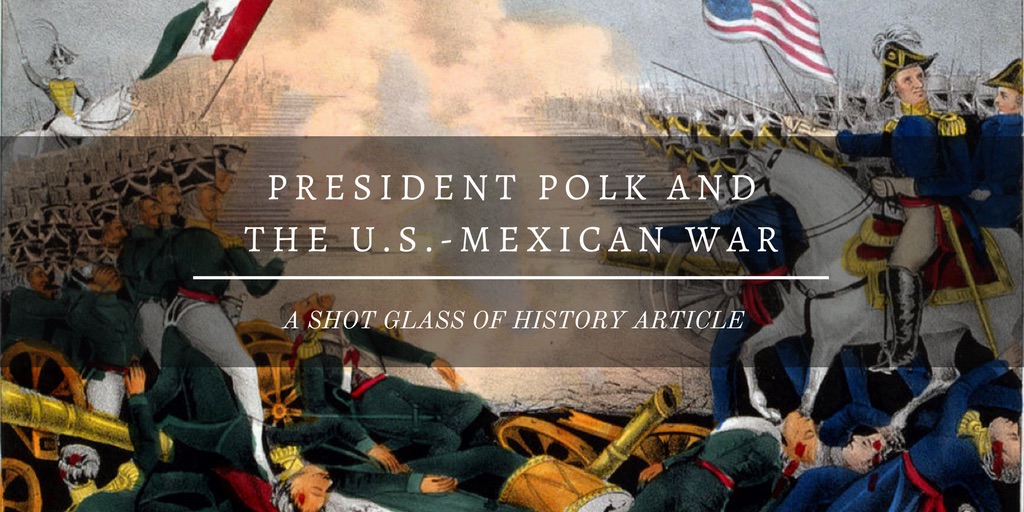A Wicked War: Polk, Clay, Lincoln, and the 1846 U.S. Invasion of Mexico
BY AMY S. GREENBERG
VINTAGE, 370 PAGES, $8.88
–
Few of America’s foreign wars have been as controversial in their own time as the U.S.-Mexican War. The conflict shattered the American narrative that their foreign policy was different from the aggressive European wars waged for territorial expansion. Up until this time American battles fought against native tribes and Barbary pirates had been self-described as purely defensive. The war with Mexico, however, was America’s first aggressive conflict against another independent republic. It was loudly denounced in America from the very beginning, and a vocal antiwar community formed to oppose the invasion of Mexico. It also had a higher rate of desertion than in any other American war. Entire Mexican battalions were formed of former U.S. soldiers who had deserted and volunteered to fight for the enemy. In her book, A Wicked War, Amy Greenberg makes the case that few people carry more blood on their hands for dragging America into this conflict than President James K. Polk.
Polk was a Southern Democrat through and through, proudly standing in opposition to the urban elite Whigs, and the banks and factories that financed them. Faced with the massive task of following in the path of his mentor, Andrew Jackson, Polk believed that he could reinvigorate the Democratic Party and unite America against the Whigs through the gospel of Manifest Destiny.

James K. Polk
The push west could solve all of America’s problems. It could provide the immigrant masses crowding American cities with land of their own to farm and a stake in society, as well as reinforce patriarchy by providing men with a means of supporting their families in an environment where strength and physical skill mattered. It would buttress American democracy by reducing the growing strength of manufacturing in the economy and the influence of the northeastern urban elite who profited front that system. And Alta California, on the far west coast, was home to harbors that might allow the United States to compete with Europe for control of trade with China. Expansion would make America strong. Expansionism was a winning political issue and the best policy for the country. But—and Polk believed this in his very soul—it was also right. (Greenberg, A Wicked War, p. 36)
But California belonged to Mexico, which meant that Polk first had to plan a way to wrestle it free, and convince Congress to support him in it.
Already within the first few months of his presidency Polk had managed to insult Mexico by ignoring Texas’s disputed status, something which had deterred previous presidents, and annexing it into the United States. Further offensive diplomatic gestures were intended to provoke Mexican nationalists, while being disguised as attempts to treat with the Mexican President. All the while Polk was dispatching war ships to threaten Mexican ports, and ordering the American army deep into disputed territory in order to push Mexico into firing the first shots.
He [Polk] certainly didn’t want to be blamed for sparking a war. No, he was counting on some bullying, and just a bit of brinksmanship to create a messy little incident that would do the trick. Like most Americans, Polk felt a deep disdain for the racially mixed population of Mexico, and confidence that they would capitulate when faced with the resolution and might of the United States. He was furthermore convinced that their leaders were both corrupt and cowardly. When faced with war, they would certainly sell him California. (p. 76)
Even if Polk couldn’t provoke Mexico into throwing the first punch he would declare war. Polk privately confided that he had “made up” his mind to send a declaration of war to Congress “very soon” (p. 102-103). And later that same week he asked his cabinet if they would support such a declaration. In his opinion there already was “ample cause for war” and “it was impossible that we could stand in statu quo, or that I could remain silent much longer” (p. 103). “[T]he country was excited and impatient on the subject,” and if he failed to respect the nation’s democratic desires, “I would not be doing my duty” (103). All but one of the cabinet agreed that Polk should request Congress to approve war against Mexico the following Tuesday. Only four hours later did he receive news that U.S. troops and Mexican soldiers had clashed in the disputed region inside the Nueces Strip. Eager to take advantage of the situation, Polk spent the rest of that day and the next, eagerly drafting up a declaration of war to be presented to Congress.
Polk denounced Mexico, falsely claiming that “Mexico has passed the boundary of the United States, has invade our territory and shed American blood upon the American soil” (p. 104). He insisted that “As war exists, and notwithstanding all our efforts to avoid it, exists by the act of Mexico herself, we are called upon by every consideration of duty and patriotism to vindicate with decision the honor, the rights, and the Interest of our country” (Ibid.).
But Polk knew that Congress, and particularly the Whigs were angered by his aggressive treatment of Mexico, and would likely oppose any such declaration of war. Trying to force Congress’s hand,
Democratic congressional leaders attached this declaration of war as a preamble to a bill authorizing funds for the troops, placed it in front of Congress, and demanded assent. It was a shrewd but contemptible move, and new in American history. By bundling the authorization of war funds with a declaration of war attributed to Mexico, Democrats ensured that any opponent of the measure could be accused of betraying the troops. . . . The flabbergasted opposition was caught completely off guard and struggled to amend the bill. Powerless and voiceless, they watched helplessly as Polk’s supporters ruthlessly stifled debate and foisted war on Congress and the country. (Ibid.)
Thanks to the recent report from the border, Congress knew that U.S. troops were currently being attacked by superior Mexican forces. Congress could either agree to Polk’s war and send them reinforcements, or they could vote against sending aid to U.S. troops already in combat.
Even fellow Southern Democrat, John C. Calhoun denounced Polk, and John M. Clayton of Delaware declared that moving the army into the Nueces Strip had been “as much an act of aggression on our part as is a man’s pointing a pistol at another’s breast” (p. 108). Faced with a choice between two evils, the Senate swallowed their anger and chose by a vote of 42-2 to supported the declaration of war. Congress too, despite their reluctance and anger, chose with near unanimity to agree to the declaration. Frustrated, Calhoun wrote that if they had been asked to vote on any one of Polk’s many steps towards war “not a tenth part of Congress” would have voted “in the affirmative, & yet we have been forced into a war” (Ibid.). Calhoun went on to blast Polk’s executive overreach. “The prescedent [sic] is pregnant with evil . . . . It sets the example, which will enable all future Presidents to bring about a state of things, in which Congress shall be forced, without deliberation, or reflection, . . . To declare war, however opposed to its conviction of justice or expediency” (Ibid.). The Cleveland Herald likewise furiously declared: “The Congress of the United States have adopted the War With the Republic of Mexico in which the President has, without their consent or authority, involved the country. . . . THE MISCHIEF IS DONE”
Polk continued to claim the façade of the moral high ground. As he explained to Secretary of State Buchanan, “though we had not gone to war for conquest” in the coming peace we “would if practicable obtain California and such portion of the Mexican territory as would be sufficient . . . to defray the expense of the war,” since “it was well known that the Mexican government had no other means of indemnifying us” (p. 109). So long as the U.S. reached the Pacific Ocean, Polk was content to believe that the conflict that soon was commonly referred to as, “Mr. Polk’s War,” had been worth it.

Initial U.S. Invasion of Mexico

